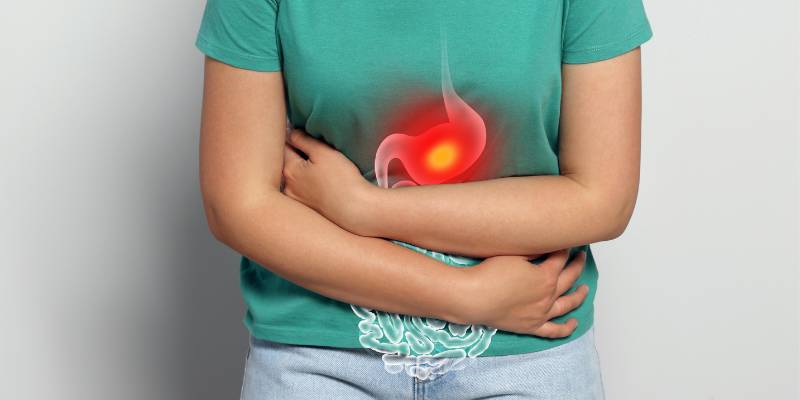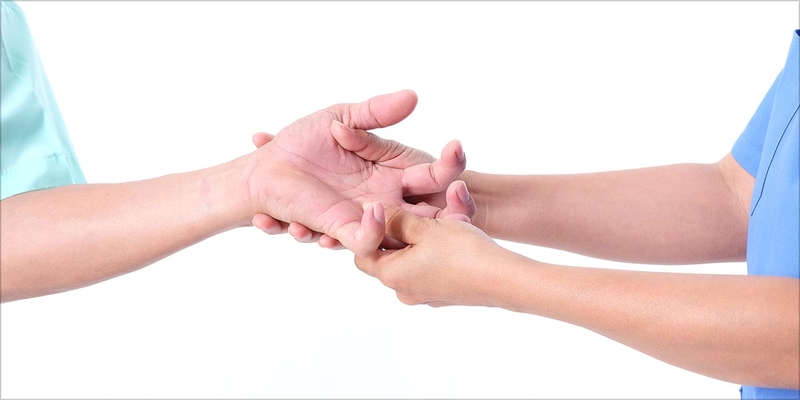Ulcerative colitis (UC) is an inflammatory bowel disease (IBD) type that causes chronic inflammation in the colon and rectum. One of the most common and distressing symptoms of UC is excessive gas, which can significantly impact a person's daily life. If you are experiencing discomfort related to gas and UC, it's essential to understand the causes and the most effective treatment options available.
In this article, we'll explore how ulcerative colitis contributes to gas, its causes, and remedies that can help alleviate symptoms. Understanding these factors is crucial to managing UC effectively and improving your quality of life. Read on to discover practical solutions and approaches that can help.
Causes of Gas in Ulcerative Colitis:
- Inflammation in the Colon
One of the primary causes of excessive gas in individuals with ulcerative colitis is inflammation of the colon. UC causes the colon's lining to become inflamed, which impairs the digestive process. This inflammation can lead to difficulty breaking down food properly, causing gas to build up in the intestines. The longer food stays in the colon, the more likely bacteria will ferment it, producing gas.
- Altered Gut Flora
Another factor contributing to gas in UC is an imbalance in the gut microbiota (the community of bacteria and other microorganisms in the intestines). Usually, your gut has a healthy balance of bacteria that help digest food. In people with UC, the inflammation in the gut disrupts this balance, leading to an overgrowth of harmful bacteria. These bacteria can ferment food more quickly than usual, producing excess gas and leading to bloating, discomfort, and flatulence.

- Malabsorption of Nutrients
Malabsorption is a common complication of ulcerative colitis. When the colon is inflamed, it may not absorb nutrients as effectively as it should. This can result in undigested food reaching the large intestine, fermented by bacteria, producing gas. Certain foods, such as carbohydrates and fiber, are more likely to cause gas in UC patients because they are not fully absorbed in the small intestine.
- Diet and Food Triggers
Specific foods can exacerbate gas production in people with ulcerative colitis. Foods high in fiber, fatty foods, dairy, and certain vegetables like beans, onions, and cabbage cause gas. This is because they are difficult to digest or ferment more readily in the intestines. Additionally, spicy foods and artificial sweeteners can irritate the gut lining, worsening symptoms like gas.
- Medications
Certain medications used to treat ulcerative colitis, such as antibiotics and corticosteroids, can also contribute to excessive gas. Antibiotics can disrupt the gut microbiota, while corticosteroids can slow the digestive process, leading to bloating and gas buildup. It's important to talk to your doctor about any side effects you're experiencing and explore alternatives if necessary.
How to Treat Gas Caused by Ulcerative Colitis?
- Dietary Changes
Changing your diet is one of the most effective ways to reduce gas caused by ulcerative colitis. Start by eliminating known triggers like high-fiber foods, fatty foods, dairy, and certain vegetables. Instead, focus on a low-residue or low-fiber diet, which is gentler on the inflamed colon and can reduce gas production. A nutritionist or dietitian can help you create a meal plan that meets your nutritional needs while minimizing symptoms.
- Probiotics
Taking probiotics may help restore your gut microbiota balance, reducing gas and bloating. Probiotics are live bacteria that help replenish the beneficial bacteria in the gut. By reintroducing healthy gut bacteria, probiotics can aid digestion and help prevent the overgrowth of harmful bacteria that contribute to excessive gas production. Before starting a probiotic regimen, talk to your doctor to ensure it's right.
- Medications to Control Inflammation
Controlling inflammation in the colon is essential for managing ulcerative colitis and minimizing symptoms like gas. Medications such as aminosalicylates (5-ASA), immunosuppressants, and biologics can help reduce inflammation and promote healing in the gut. By addressing the root cause of the problem, these medications can help reduce the gas production associated with UC. Follow your healthcare provider's instructions and continue with your prescribed treatment plan.
- Enzyme Supplements
Taking digestive enzyme supplements can help improve nutrient absorption and reduce gas. These supplements contain enzymes that assist in breaking down food, making it easier for the digestive system to absorb nutrients and reducing the chances of gas buildup. Enzyme supplements may be especially beneficial for individuals with UC who have trouble digesting certain foods.
- Stress Management
Stress can exacerbate symptoms of ulcerative colitis, including gas and bloating. High stress levels can irritate the gut, worsen inflammation, and disrupt digestion. Incorporating stress-reduction techniques such as yoga, meditation, deep breathing exercises, and regular physical activity into your routine can help reduce flare-ups and alleviate discomfort. Practicing relaxation techniques can also help manage anxiety related to UC, improving your overall well-being.
- Antispasmodic Medications
For some people, the abdominal pain and bloating caused by gas may be severe. In such cases, antispasmodic medications can help relieve cramping and bloating. These medications work by relaxing the muscles of the intestines, allowing gas to pass more quickly. Consult your doctor to determine whether antispasmodic medicines are appropriate for you.
- Stay Hydrated
Staying hydrated is crucial for managing ulcerative colitis and preventing gas-related discomfort. Dehydration can worsen symptoms like bloating and constipation, so drinking plenty of water throughout the day is essential. Hydration helps keep the digestive system functioning correctly and can ease gas passage through the intestines.

Conclusion
Ulcerative colitis is a challenging condition, and gas is just one of many symptoms that can impact your quality of life. Understanding the causes of excessive gas and exploring the various treatment options available is crucial for managing this symptom effectively. You can minimize gas and improve your overall health and well-being by making dietary changes, managing stress, taking prescribed medications, and seeking professional support.
If you're struggling with gas due to ulcerative colitis, don't hesitate to talk to your doctor. Together, you can develop a complete treatment plan to help manage your symptoms and improve your daily comfort.







